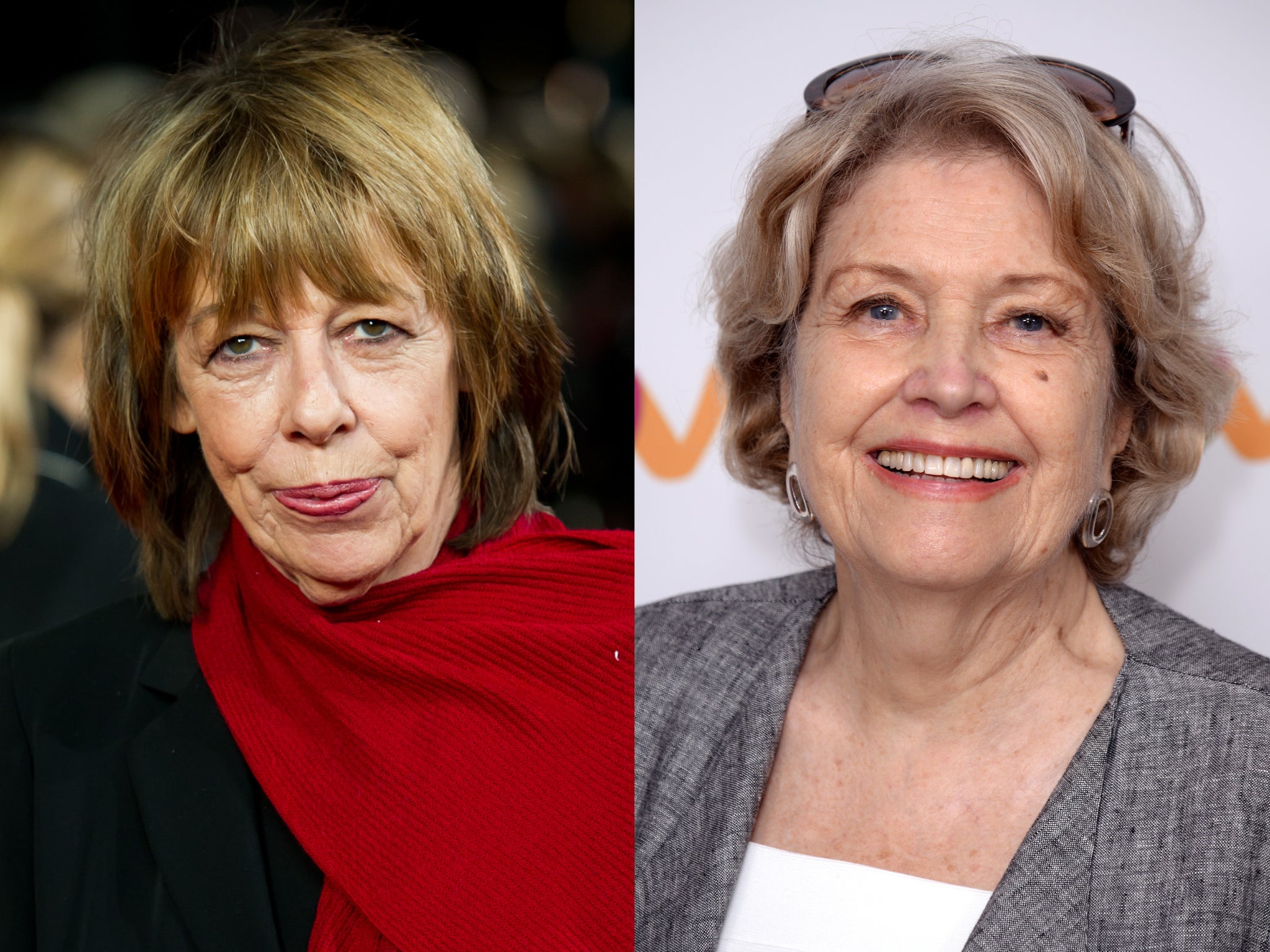The tearjerking lesbian love scene deleted from Love Actually
Frances de la Tour told The Independent it was ‘odd’ that her storyline had been cut
Your support helps us to tell the story
From reproductive rights to climate change to Big Tech, The Independent is on the ground when the story is developing. Whether it's investigating the financials of Elon Musk's pro-Trump PAC or producing our latest documentary, 'The A Word', which shines a light on the American women fighting for reproductive rights, we know how important it is to parse out the facts from the messaging.
At such a critical moment in US history, we need reporters on the ground. Your donation allows us to keep sending journalists to speak to both sides of the story.
The Independent is trusted by Americans across the entire political spectrum. And unlike many other quality news outlets, we choose not to lock Americans out of our reporting and analysis with paywalls. We believe quality journalism should be available to everyone, paid for by those who can afford it.
Your support makes all the difference.The festive season has rolled around again, bringing with it endless repeats of Love Actually on TV and streaming services.
But while Richard Curtis’s star-studded romcom may be a Christmas viewing staple, few fans know about one highly emotional LGBT+ relationship that ended up on the cutting room floor.
The plotline centred around an older lesbian couple who were connected to Karen (Emma Thompson) and her family.
It saw Anne Reid play the headmistress at the school attended by Karen’s son, while Frances de la Tour appeared as her terminally ill partner Geraldine.
The film was meant to feature a moving scene in which the pair bicker over their differing tastes in fancy sausages and display their wicked senses of humour, before cuddling up at night. It is later revealed during a school assembly that Geraldine died shortly before Christmas.
However, the story didn’t make the final cut, meaning that Love Actually only shows the relationships between straight couples (although there is homoerotic subtext between Bill Nighy’s rock star Billy Mack and his manager).
In an interview with The Independent earlier this year, De la Tour commented on the “odd” decision to cut the scene from the film.
“We had a lovely scene,” the actor said. “And I think it was the only gay scene. It’s odd that they cut it. Maybe it was too dark to bring into it. Because it ended up being quite a light and fluffy film, didn’t it? At least [Curtis] wrote to me and said, ‘We’re terribly sorry but it’s got to be cut.’”

On the DVD’s bonus footage, Curtis shared his sadness in the lack of LGBT+ stories in the film, adding that he was “really sorry to lose” the lesbian story.

Watch Apple TV+ free for 7 days
New subscribers only. £8.99/mo. after free trial. Plan auto-renews until cancelled

Watch Apple TV+ free for 7 days
New subscribers only. £8.99/mo. after free trial. Plan auto-renews until cancelled
“The idea was meant to be that you just casually meet this very stern headmistress, but later on in the film we suddenly fell in with her and you realise that, no matter how unlikely it seems, any character you come across in life has their own complicated tale of love,” he explained.
First released in 2003, Love Actually follows multiple interweaving storylines all centred around the festive season.
The ensemble cast includes Hugh Grant, Thompson, Alan Rickman, Liam Neeson, Colin Firth, Bill Nighy, Keira Knightley, Chiwetel Ejiofor, Martin Freeman, Laura Linney and Rowan Atkinson.

This year, the cast of the film reunited for an interview special with Diane Sawyer, in which Curtis said that the lack of diversity made Love Actually feel “out of date”.
“My film is bound in some moments to feel out of date,” he said. “The lack of diversity makes me feel uncomfortable and a bit stupid.”
However, Martine McCutcheon, who plays the prime minister’s employee Natalie, has since defended the film, claiming that the film’s imperfections are what have kept people coming back to Love Actually “all these years later”.
“I think, honestly, it was 20 years ago, and the world has changed a lot, but I also think that part of the charm of the film was the fact that some of the love stories and the characters weren’t perfect,” she said.
“For me, part of the reason that I love the film is because it was so honest and it wasn’t about ticking too many boxes and being PC, it was about being human.”







Join our commenting forum
Join thought-provoking conversations, follow other Independent readers and see their replies
Comments